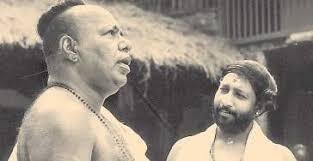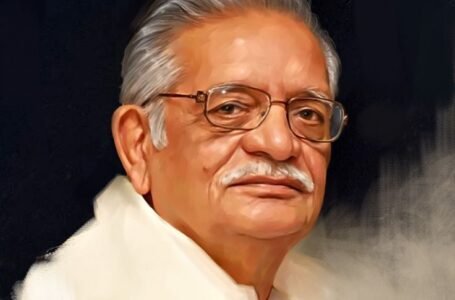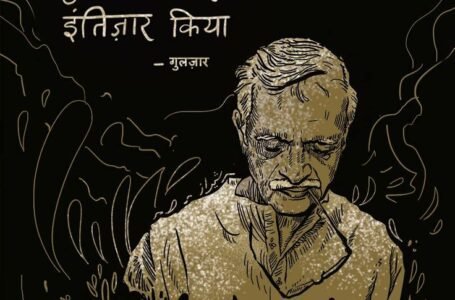Folktale of Kerala – ‘Perumthachan and His Son’
- Ancient history Asian history
 Trushti Dand
Trushti Dand- February 24, 2025
- 0
- 7

The Story
Who was Perumthachan?
Perumthachan, meaning “Great Carpenter,” was a legendary master architect, sculptor, and craftsman from Kerala. He belonged to the Vishwakarma community, known for their expertise in woodwork, temple construction, and sculpture. His unparalleled skill made him famous across the land.
The Birth of His Son
Perumthachan had a son who was equally talented—if not more—than his father. As the boy grew, his skills in carpentry and architecture started surpassing those of Perumthachan. This filled Perumthachan with both pride and fear.
The Conflict – Jealousy and Fate
Despite being proud of his son’s abilities, Perumthachan couldn’t help but feel insecure. He began to see his own significance diminish as his son outshone him in craftsmanship. Some versions of the story suggest that Perumthachan became jealous, while others portray him as a man troubled by fate, believing that no disciple should exceed the master.
The Tragic Climax – The Death of His Son
One day, while working on a temple, Perumthachan was standing at a height, carving wood. His son was below, deeply engrossed in his work. In a fateful moment, Perumthachan accidentally (or deliberately, according to some versions) dropped a chisel, which struck his son fatally on the head, killing him instantly.
The Moral of the Story
The folktale serves as a reminder of:
- The inevitable cycle of time, where the new generation surpasses the old.
- The dangers of pride and jealousy.
- The bittersweet reality that a teacher must eventually accept the growth of their student.
Historical Background of Perumthachan
Perumthachan is believed to have lived during Kerala’s medieval period, though there is no concrete historical record of his existence. His story is part of Kerala’s rich oral tradition and has been passed down through generations by temple artisans and scholars.
- Perumthachan as a Vishwakarma Artisan
- Perumthachan is said to have belonged to the Vishwakarma community, a caste of traditional artisans specializing in woodwork, stone carving, and metalwork.
- The Vishwakarmas were responsible for building Kerala’s temples, palaces, and traditional homes, using techniques that emphasized eco-friendly materials, symmetry, and divine geometry.
- His legendary status as an unparalleled master craftsman suggests that he may have been a real person whose skills became so celebrated that he turned into a mythological figure.
- Influence of Hinduism and Temple Architecture
- Hindu texts often mention divine architects like Vishwakarma, the celestial builder of the gods. Perumthachan is sometimes considered a mortal incarnation of Vishwakarma, blessed with divine knowledge of construction and design.
- His story reflects the Gurukula (teacher-student) tradition, where knowledge is passed down generations, but also warns against the dangers of human ego.
Cultural Impact of Perumthachan’s Folktale
- Kerala’s Architectural Legacy
- Many of Kerala’s ancient temples, wooden sculptures, and traditional homes (Nalukettu) are attributed to Perumthachan’s influence.
- The Vadakkunnathan Temple in Thrissur, the Sree Padmanabhaswamy Temple in Thiruvananthapuram, and many others showcase the architectural styles that are linked to his legend.
- His story continues to inspire traditional carpenters and sculptors, who follow his methods in designing temples and wooden carvings.
- Symbolism in Kerala’s Society
- The story is often interpreted as a philosophical lesson: that a master should not feel threatened when their disciple surpasses them, as progress is a natural part of life.
- In some interpretations, Perumthachan is not jealous but rather accepts fate, believing that “no creation should be greater than its creator.” This highlights the fatalistic worldview in Indian philosophy, where destiny plays a powerful role in shaping lives.
- The tale also reflects social dynamics, particularly the rigid caste system and the struggles of artisans who were highly skilled yet often relegated to lower societal status.
- Influence on Malayalam Literature and Cinema
- The story of Perumthachan has been a recurring theme in Malayalam literature, theater, and cinema, exploring its deep-rooted psychological and philosophical aspects.
- Kavalam Narayana Panicker, a famous Malayalam playwright, wrote a celebrated play based on this folktale.
- The 1990 Malayalam film “Perumthachan”, directed by Ajayan and starring Thilakan, is one of the most famous cinematic adaptations. It presents a nuanced portrayal of Perumthachan’s life, his conflicts, and the tragedy of his son’s death.
- In modern poetry and prose, Perumthachan’s name is often used metaphorically to describe a master craftsman or an artist with divine abilities.
- Impact on Kerala’s Artisans and Craftsmanship Today
- Even today, highly skilled carpenters and sculptors in Kerala are sometimes called “Perumthachan” as an honorary title.
- The tale serves as a reminder of the importance of mentorship and accepting the evolution of talent across generations.
- Many traditional artisans still follow Perumthachan’s principles of precision, symmetry, and harmony with nature, which are evident in Kerala’s wooden temples and heritage homes.
Legacy of Perumthachan’s Folktale
- A Cautionary Tale on Ego and Growth
- The story continues to be told as a lesson for teachers, parents, and mentors, encouraging them to nurture talent without insecurity.
- It is often used to highlight how excessive pride or fear of being surpassed can lead to downfall.
- Preservation of Traditional Knowledge
- Kerala’s heritage of wooden architecture, intricate carvings, and temple construction owes much to the techniques attributed to Perumthachan.
- His name is invoked in discussions about sustainable architecture and the revival of traditional building techniques in modern Kerala.
- Influence on Education and Art
- The legend is studied in Kerala’s folklore and cultural studies, particularly in discussions about the Vishwakarma tradition and temple craftsmanship.
- Artists, sculptors, and architects draw inspiration from his tale, keeping his legacy alive in contemporary creative fields.
- Symbol of Kerala’s Artistic Heritage
- Perumthachan remains an icon of Kerala’s craftsmanship and artistic excellence, representing the deep connection between art, spirituality, and fate.
- The name “Perumthachan” is sometimes used metaphorically in Kerala to refer to someone with extraordinary skills and wisdom in their craft.
Conclusion
The folktale of Perumthachan and his son is more than just a myth—it is a profound narrative about talent, destiny, and human emotions. It continues to influence Kerala’s art, architecture, and cultural philosophy, making Perumthachan one of the most revered figures in Kerala’s folklore.


